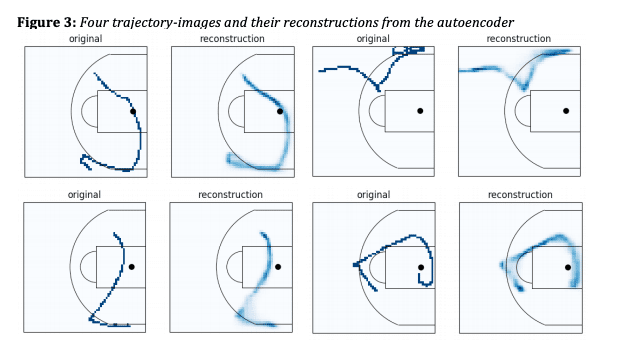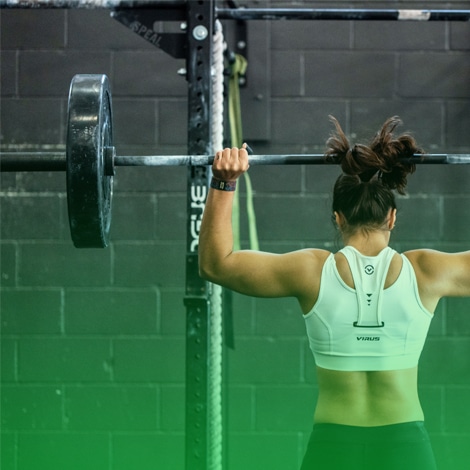Over the weekend the Fusion Sport team once again attended and Sponsored the MIT Sloan Sports Analytics Conference in Boston.|
The presentations and discussions covered the various applications of data analytics in sport including using data for performance optimization, business strategy, marketing and fan engagement. There was also a heavy emphasis on the future of data for athletes, coaches and fans and the legal and moral implications of data collection.
But it was the presentations on how to use data to inform and enhance performance strategies and the discussions around the future of data technologies and deep learning that truly piqued our interest.
Here are our key takeaways from the 2019 MIT Sloan Sports Analytics Conference.
1. A Systems Based Approach will give your team the greatest chance to succeed

Glenn Stewart, High Performance Manager at West Coast Eagles (AFL)
Using systems based learning was explored extensively over the course of the conference by various speakers, but we felt it was best explored by Glenn Stewart. His engaging presentation was highly relevant in bridging the gap between the collection of data and the application of that data to inform high performance strategies – strategies that resulted in his team winning the AFL premiership in 2018.
Glenn discussed the importance of developing an overarching strategy that has been informed by extensive data analysis to assess what makes your team win. Referencing the book ‘Good to Great’ and the Hedgehog Principle, he revealed the core strategy of identifying 4 or 5 key things to focus on, your ‘Big Rocks’, that would ultimately contribute more to your success than any small 1% that may tempt and distract you along the way.
Glenn’s presentation was truly engaging and relevant for sports scientists, high performance experts, coaches and even athletes. To watch his presentation now, click here.
2. Teams are Using Deep Learning to Understand Patterns of Player Movement
Akhil Nistala and John Guttag
Teams are now exploring the use of tracking data to determine the velocity, separation and orientation of offensive and defensive teams and subsequently quantify a QB’s decision making and performance based off these factors. A fascinating insight into the use of data with future research needing to consider the role of linebackers protecting the QB, the position of WR hands, and the vertical orientation (player height and/or leap) on the probability of success.
This is a fascinating area and one we’re keen to keep an eye on. To read the paper click here.

3. Skill Acquisition – Are our kids specializing in a single sport too early?
Making the Modern Athlete, David Epstein & Malcolm Gladwell
A fascinating on the couch session with two extremely intelligent authors, both of which have written extensively on the topics of talent, opportunities and what makes an athlete a sporting success.
Takeaway points:
• The greatest athletes in unstructured sports (team sports etc.) tended to be those that played multiple sports growing up. A transfer of skills may be occurring.
• Ultimately the greatest athletes will likely succeed at any sport but are we blocking potential if we place a kid in a sport too early when their attributes are not fully developed
• Look for unique training opportunities outside of your sport-specific skills that may produce transferable benefits
Click here to watch the full conversation now.
4. If you’re an up and coming sports scientists, you need to invest time in learning a statistical program such as R

The space is moving fast, and a complex analytical approach is the hot topic!
Our team would highly recommend the use of datacamp.com you can start with a free course, ‘Introduction to R’.
Ensure you have a project in mind and attempt to answer the sports science questions you have each day. Lastly, communication is critical, ensure you talk to coaches along the way so that any modeling you attempt can eventually be translated back to the coach. Start with the WHY!
If you’re a Smartabase user, we also have a free R package that will enable you to extract data from your Smartabase site for further analysis using R from Zac Pross, access it here.
For those who are ready to explore further, Asmae Toumi hosted a fantastic workshop at SSAC on using R Stats for Predictive Modeling, click here to watch it now.
Recommended Reading from the conference:
From Good to Great: Why Some Companies make the Leap and Others Don’t – Jim Collins
The Sports Gene: Inside the Science of Extraordinary Athletic Performance – David Epstein
Range: Why Generalists Triumph in a Specialized World – David Epstein
Outliers – Malcolm Gladwell
The 5th Discipline: The art and practice of the learning organization – Peter M. Senge
Thinking Fast and Slow – Daniel Kahneman







